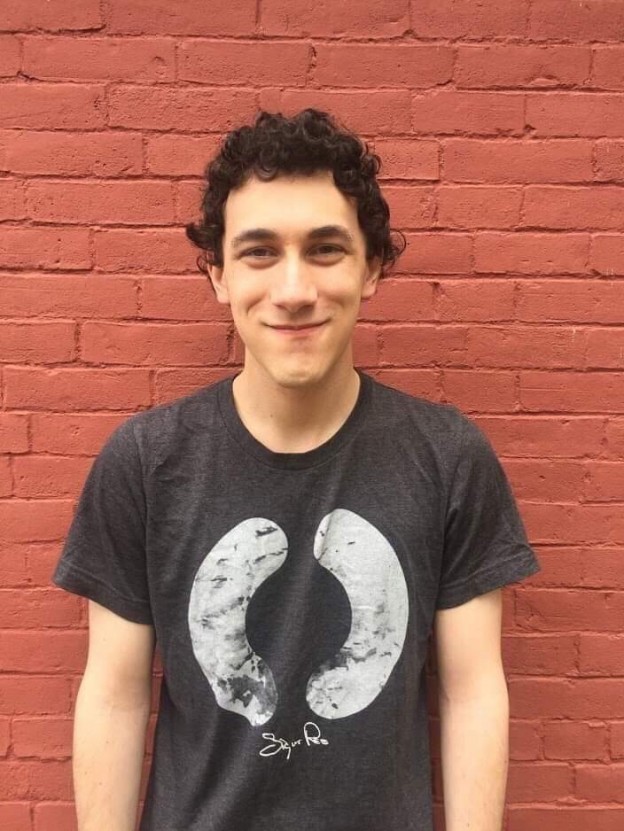It is Swarthmore’s philosophy that the “ability to understand works of art — either through analysis or practice — is the key to a richer understanding of the human experience,” and Nathan Anderson ‘19 is one student who understands this fully. He has embraced art throughout his college experience and will graduate this semester with a major in Art History and a minor in Music, though he became involved with music as both an academic subject and recreational activity long before he was a Swarthmore student. He received formal music education from the Portsmouth Music and Arts Center (PMAC), which paved his path to pursue further musical interests. Anderson took piano lessons as early as five years old, learned how to play the saxophone in sixth grade, and joined his high school’s jazz band. By the time he entered Swarthmore, he knew he wanted to continue with his musical pursuits, joining the wind ensemble and jazz ensemble during his first year at Swarthmore.
Although music has always been a big part of Anderson’s life, Swarthmore still provided him with new and exciting experiences, particularly in its music theory courses and jazz ensemble ensemble. The music theory courses he took at Swarthmore delved much deeper and were much more “advanced than [his] high school’s,” and the ensemble introduced Anderson to “big band” music, which he had “no big exposure to” prior to Swarthmore. “I was used to playing a different type of music coming from jazz band in high school,” Anderson says, so his performances in the jazz ensembles at Swarthmore were always a unique and worthwhile experience. In fact, if it weren’t for his involvement with the ensembles at Swarthmore, Anderson says he “most likely would have to give [music] up,” and he credits the college for giving him an “opportunity to continue playing [his] instruments.”
However, Anderson did not limit his musical interests to only be involved in the Music Program; he also was able to integrate his Music minor with his Art History major by placing much of his academic focus on medieval studies. His favorite experience was during the Fall semester of 2018 when he combined both his interests in music and art history and sung in the Early Music Ensemble, a student group formed by Anderson himself and Professor James Blasina. The ensemble, which was funded by the Fetter Chamber Music Program, performed vocal music from the sixteenth century, specifically madrigal pieces. Anderson admits that that performance was a little bit out of his “comfort zone, but it was still a fantastic experience.” By the end of the semester, Anderson was proud of what the group had to present.
Music has always been about fun for Anderson, so although he does not intend on continuing to study music professionally, he hopes to still play recreationally, perhaps “in a community group” of some sort. Balancing music as a hobby with a career can be challenging for some, but Anderson feels that Swarthmore taught him well how to “keep [music] fun and not too serious,” a distinction that is very important to him and is sure to follow him after graduation.
Maria Consuelo de Dios ’21
